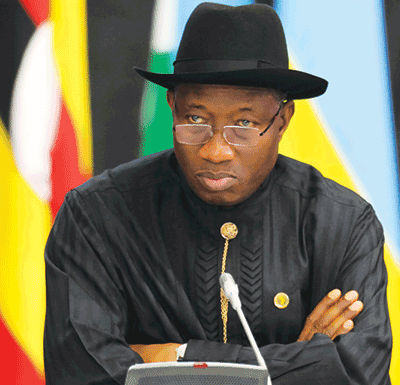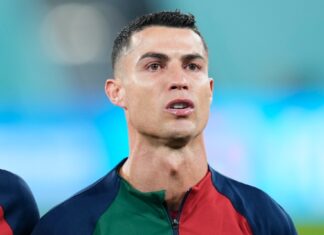Enthusiasm. Excitement. Apprehension! All summarise the feelings of Nigerians with the approach of 2015 election. The date means many things to many Nigerians. To some, it offers an opportunity for change, while others see it as a time for consolidation. But then, there is apprehension of sort.

In some quarters, it is whispered that the era may witness the end of the Nigerian nation. Somehow, politicians do not help matters as they embark on moves that tend to set the polity on edge.
Their build-up to the contest began too early enough. While some elected officials began surreptitiously to plan for re-election shortly after their inauguration in 2011, others tarried awhile. But by the close of 2013, it was clear that governance had given way for politicking in some states and even at the federal level.
Drawing the battle line
The two leading political parties in the land – Peoples Democratic Party (PDP) and All Progressives Congress (APC) – were not left out in the obvious rat race.
Early in the year, it was apparent that they had kicked off their campaigns in various guises. That was in sharp contrast to the electoral guidelines.
Section 99 of the Electoral Act stipulates: “For the purpose of this Act, the period of campaigning in public by every political party shall commence 90 days before polling day and shall end 24 hours prior to that day.”
But while the parties engaged in what had all the trappings of campaigns, they simply called them rallies. For instance, the APC, in a well-attended event on March 7, 2014 in Abuja, reeled out what it said was the party’s roadmap, detailing what Nigerians stood to benefit from voting for it in 2015. It later followed it up by sending unsolicited text messages to Nigerians, highlighting some of its campaign promises which included free healthcare and education, monthly stipend of N5,000 to the elderly among other political goodies.
PDP, on its part, embarked on even more elaborate show to woo voters to its side. The party, in what it cleverly termed ‘Unity Rally’, toured parts of the country, showing off its winning edge.
Incidentally, the Independent National Electoral Commission (INEC) that was supposed to call the parties to order appeared helpless. Aside conceding that some of the political parties were in breach of the Electoral Act by engaging in early campaigns, INEC chairman, Attahiru Jega, chose to play safe by avoiding naming the offenders and their particular offence.
That was the trend. But as it is, the hide-and-seek game is over. Finally, the battle line is drawn. With the political parties successfully concluding their primaries for the various elective positions, the contest for 2015 is literally underway.
PDP set the tempo of the engagement by throwing up President Goodluck Jonathan as the arrowhead of its attack. At an impressive affirmative congress that lasted from Wednesday to Thursday last week, it formally adopted the president as its candidate for the presidential poll. Not many were surprised at the turn of events, given that the entire organs of the party, had, by October, adopted him as the party’s sole presidential candidate.
In fact, in a bid to ensure that the agenda did not, in any way, go awry, feeble efforts by the first son of the late Prime Minister, Dr. AbdulJhalil Tafawa-Balewa, at running against the president were effectively extinguished, as he surprisingly announced his withdrawal from the race, after selling the dummy of offering stiff challenge. Similarly, Professor Akasoba Duke-Abiola, who also had indicated interest in the race, later chickened out. With the obstacles dismantled, Jonathan picked the PDP ticket, almost effortlessly.
But not so for General Muhammadu Buhari, who emerged APC presidential flag-bearer at its primary, also last week. His was a gruelling encounter that featured stiff challenge from former Vice President, Atiku Abubakar; Kano State Governor, Rabiu Kwankwaso; Imo State Governor, Rochas Okorocha; and publisher of Leadership newspaper, Sam Nda-Isaiah.
Jonathan’s campaign is anchored on consolidation of his transformation agenda, which, his foot soldiers claim, has fixed the country’s infrastructure, job creation, enhanced security and boost in the country’s global perception, among others.
Buhari, on the other hand, aside his traditional disposition to transparency and zero tolerance to corruption, will also lean on the APC roadmap to woo voters.
Action in the states
But the battle will not be limited to the centre. The states will also witness action from the two parties. In Lagos, for instance, it will be a battle of the establishment represented in Akinwunmi Ambode of APC and a new order manifested in Jimi Agbaje of the PDP. Ambode, whose candidacy had earlier been advertised by the Oba of Lagos, Rilwanu Akiolu, to the chagrin of fellow party men and the opposition, rides on the wings of the so-called Bola Tinubu tendency that has been on the driver’s seat of the state’s politics since the onset of the current democratic dispensation in 1999. Supporters and beneficiaries of the system are expected to rally round the candidate to sustain the arrangement.
But PDP and critical Lagos electorate, who see the existing order as thriving on godfather and entitlement politics, accuse it of slowing the pace of the state’s development potential. Agbaje, who had run an exciting campaign on the platform of Democratic Peoples Alliance (DPA), in 2007, is thus, seen as a veritable face of the new Lagos.
The same battle of wits is expected to play out in Oyo as Governor Abiola Ajimobi of APC takes on Rasheed Ladoja of Accord Party (AP), Teslim Folarin of PDP and Adebayo Alao-Akala of Labour Party (LP). All have antecedents that promise a tight race. Ajimobi comes on board with the so-called power of incumbency. Ladoja and Alao-Akala are former governors of the state, while Folarin was at a time Senate Majority Leader. While the governor will flaunt his achievements in the last four years to seek re-election, his opponents, apart from their individual characters and goodwill, will lean on the myth that no governor had governed the state twice, since its creation.
The contest in Kaduna will see Governor Ramalan Yero of PDP and former Federal Capital Territory (FCT) Minister, Nasir El-Rufai of APC, locking horns. Both incidentally are Muslims and will rely on the largely Christian-dominated Southern senatorial zone of the state for victory.
In the East, action is expected in Imo and Abia states. In Imo, Deputy Speaker of the House of Representatives, Emeka Ihedioha, has clinched the PDP ticket. APC ticket was, until last Thursday, held in trust for Governor Okorocha by his son-in-law and Commissioner for Lands and Urban Development, Uche Nwosu. Captain Emmanuel Iheanacho, former Internal Affairs Minister, is the preferred choice of the All Progressives Grand Alliance (APGA). With Okorocha finally picking the ticket, it promises to be an engaging encounter. Ihedioha, whose Owerri zone, has been laying claims to the post on account of a zoning arrangement that Okorocha’s governorship appears to have altered, is not looking back on the race. With his chances of returning to the House of Representatives foreclosed, he will pull his network of contacts and years of political experience to give the governor a huge fight.
Such is the case with Iheanacho, whose membership of APGA contributed a lot to Okorocha’s victory in the last election. He was also said to have played key role in Owerri zone producing the party’s only senator, Chris Anyanwu, in 2011. Anyanwu has, however, returned to PDP.
But the governor, who hails from Orlu zone that is said to have had its fair share of power slot in the state, is certainly not a push-over. Seen in many quarters as a man of the people, he can always count on the lower echelon of the society who, incidentally, constitute the voting population in the envisaged contest.
In the neighbouring Abia, Okezie Ikpeazu of PDP, who is seen as enjoying the blessing of the governor, Theodore Orji, is billed to meet a strong match in Dr. Alex Otti, former Group Managing Director of Diamond Bank, who is running on the platform of APGA. Delta, Ogun and Niger may also witness similar tight races.
Parties in crisis
There are also possibilities of dissensions or insurrections of sorts in states where party chieftains had cried blue murder in their primaries and congresses. In these states, the governors and/or the godfathers were alleged to have practically selected candidates that would fly the parties’ flags.
Rivers State features prominently in this league. The governor, Rotimi Amaechi, and the APC leadership in the state, to the surprise of many, handed the party’s ticket to Dakuku Peterside, member of the House of Representatives, against the expectation of Senator Magnus Abe emerging the candidate.
Since the action, Ogoni, Abe’s ethnic group which has been crying marginalisation in the state’s politics, has literally been up in arms, threatening to pay APC back in its own coins during election. It is also not rosy for PDP that has settled for former Minister of State for Education, Nyesom Wike. The PDP candidate, who hails from the same senatorial district with Amaechi, is said to have had his way on orders from the presidency. His emergence has not gone well with party chieftains and voters from other sections of the state.
Akwa Ibom, Niger, Abia, Enugu, Cross River chapters of PDP have allegations of imposition of candidates by respective governors and stakeholders. There are, thus, fears of aggrieved aspirants moving out of the party or staying behind and sabotaging its efforts. Alao-Akala has taken the step of leaving the Oyo wing of the party for LP. Governor Martins Elechi of Ebonyi State has also followed suit, joining LP after he lost out in the political equation in the state’s governorship primary. Similar action is expected from some chapters in days and weeks ahead. For example, some embittered members of Cross River State chapter of the party who blame Governor Liyel Imoke of being behind their woes, last week, put up an advertorial, threatening dumping the party if their complaints at marginalisation were not treated to their satisfaction.
Which way out?
In other instances, there have been reported moves at appeasing the aggrieved members. Not much is known on the success of the efforts. Would they remain or leave? That is the question. But the battle line is drawn for 2015 politics. And the die is cast.













